May 9, 2016 | Focolare Worldwide
Itinerary:
- Welcome celebration at Mariapolis Piero
- May 17-20: School of Inculturation
- May 21-22: New Families Pan-African Meeting
- May 25: Visit to the Academic Council of the Catholic University of Eastern Africa (CUEA)
- May 27: Presentation at the Ecumenical Commission
- May 28-29: Meeting with the Focolare communities from Burundi, Rwanda, Uganda and Tanzania, and inauguration of Mary of the Light Church in Kenya.
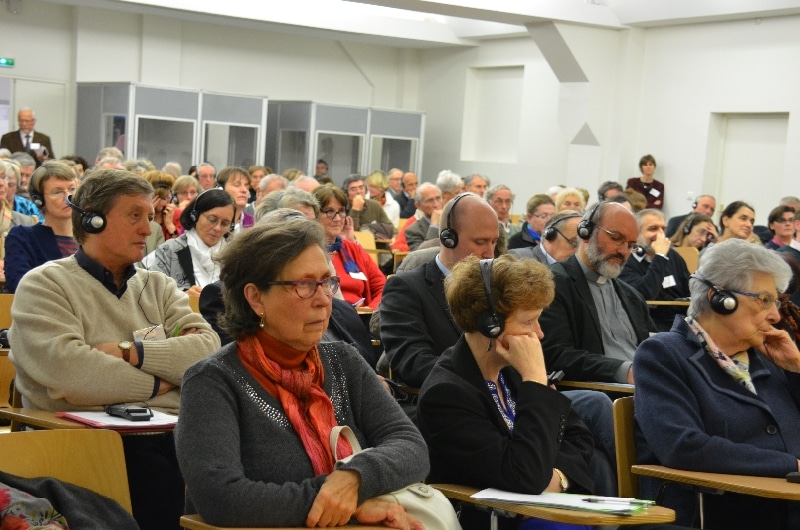
May 9, 2016 | Focolare Worldwide
 “Resignation and weariness do not belong to the soul of Europe; even our problems can become powerful forces of unity” For the majority of Europeans, May 9 is an occasion to celebrate the values of integration, unity and peace, as this date marks the anniversary of the historical Schuman declaration that gave birth to the European Union; but for others it marks the time when Stalin declared victory over Germany on May 9, 1945 and rights started to be deprived under the Soviet rule. The innovative process of integration, which Europe dared to start sixty years ago, should be confronted against this historical background even today. Considering the present crisis and the contradictions inherent in the cultural and social paradigms that peoples in Europe are experiencing, one is bound to ask: is the European experience still valid? Do Europeans still want to be together? For Pasquale Ferrara, a diplomat, a scholar and a lecturer in International Relations and Diplomacy, “the European vision of integration – which consists of bringing together not so much the leaderships, but the political will of the different countries to govern jointly over phenomena that are beyond control of individual states – is still one of great insight”. Through integration “Europe demonstrates that even today multilateralism can have an added value if attention is not centred on the state but on the political function it performs to provide for the needs of its citizens in a global and transnational world”.
“Resignation and weariness do not belong to the soul of Europe; even our problems can become powerful forces of unity” For the majority of Europeans, May 9 is an occasion to celebrate the values of integration, unity and peace, as this date marks the anniversary of the historical Schuman declaration that gave birth to the European Union; but for others it marks the time when Stalin declared victory over Germany on May 9, 1945 and rights started to be deprived under the Soviet rule. The innovative process of integration, which Europe dared to start sixty years ago, should be confronted against this historical background even today. Considering the present crisis and the contradictions inherent in the cultural and social paradigms that peoples in Europe are experiencing, one is bound to ask: is the European experience still valid? Do Europeans still want to be together? For Pasquale Ferrara, a diplomat, a scholar and a lecturer in International Relations and Diplomacy, “the European vision of integration – which consists of bringing together not so much the leaderships, but the political will of the different countries to govern jointly over phenomena that are beyond control of individual states – is still one of great insight”. Through integration “Europe demonstrates that even today multilateralism can have an added value if attention is not centred on the state but on the political function it performs to provide for the needs of its citizens in a global and transnational world”.  “A Europe that is able to stay together and thus rediscover what more can be done for the world in a better way” – these words of Maria Voce summerize the Focolare Movement’s perspective while contributing towards ongoing processes in Europe. An example of this commitment is “Together for Europe”, which brings together more than 300 communities and movements that belong to different Christian Churches. These form a network which pursues shared goals and promotes a culture of reciprocity, which stimulates individuals and peoples to welcome and get to know each other, to be reconciled and to offer mutual support. “’Together for Europe’ is not an end in itself, but its nature is exquisitely political in the noblest sense of the word: it strives for the good of that part of humanity which is Europe; it aims at the revival of its roots and at its awareness to contribute to the rest of the world” . “Together for Europe” is organizing a European event that will take place in Munich from June 30 to July 2, 2016. During the first two days, 36 round tables and forums will offer the opportunity to share experiences and views on issues concerning Europe. An outdoor rally will conclude the event on the third day. Pope Francis and the Ecumenical Patriarch Bartholomew I will be present through their video messages. Jean-Claude Junker, President of the European Commission, and Thorbjørn Jagland, Secretary General of the Council of Europe, granted their patronage. (http://www.together4europe.org/). “At a time when Europe is mostly needed, the more it seems to lack the ability to face these challenges”, comments Ferrara, while referring to the lack of political figures with a broad vision. He concludes: “But, are we looking in the wrong direction? Maybe we think that one or more political leaders are needed, while instead we must give more value to civil society, focusing more on youth and their social and political creativity, on their ability to imagine the “Old” continent as a “new” one”. Source: Press releases
“A Europe that is able to stay together and thus rediscover what more can be done for the world in a better way” – these words of Maria Voce summerize the Focolare Movement’s perspective while contributing towards ongoing processes in Europe. An example of this commitment is “Together for Europe”, which brings together more than 300 communities and movements that belong to different Christian Churches. These form a network which pursues shared goals and promotes a culture of reciprocity, which stimulates individuals and peoples to welcome and get to know each other, to be reconciled and to offer mutual support. “’Together for Europe’ is not an end in itself, but its nature is exquisitely political in the noblest sense of the word: it strives for the good of that part of humanity which is Europe; it aims at the revival of its roots and at its awareness to contribute to the rest of the world” . “Together for Europe” is organizing a European event that will take place in Munich from June 30 to July 2, 2016. During the first two days, 36 round tables and forums will offer the opportunity to share experiences and views on issues concerning Europe. An outdoor rally will conclude the event on the third day. Pope Francis and the Ecumenical Patriarch Bartholomew I will be present through their video messages. Jean-Claude Junker, President of the European Commission, and Thorbjørn Jagland, Secretary General of the Council of Europe, granted their patronage. (http://www.together4europe.org/). “At a time when Europe is mostly needed, the more it seems to lack the ability to face these challenges”, comments Ferrara, while referring to the lack of political figures with a broad vision. He concludes: “But, are we looking in the wrong direction? Maybe we think that one or more political leaders are needed, while instead we must give more value to civil society, focusing more on youth and their social and political creativity, on their ability to imagine the “Old” continent as a “new” one”. Source: Press releases
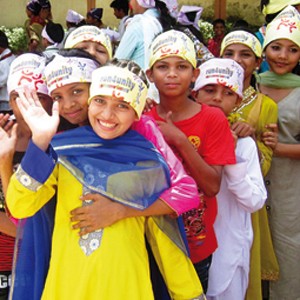
May 6, 2016 | Focolare Worldwide
 Lilia and Paul from Aleppo speak out in the name of their Syrian peers. Their message to the Youth for Unity of Argentina immediately went global: “Thanks, we feel your love and that you share our pain even if you are far. We, the Youth for Unity of Syria, live in three cities: Damascus, Aleppo, and Kfarbo (near Hama). There are 125 of us; 25 are here in Aleppo. There were more of us before, but due to the situation, many friends had to migrate.” It’s the story of Marian, who left for Belgium. She didn’t want to go since all her friends remained in Syria, but had to join her family. «A very important moment for us is the Time Out at 12 noon. We try to pray not only among us, but also with our relatives and friends. One of us proposed this action to a Muslim friend, and so now, at 12, each one prays in his heart, according to his religion. We want to propose it also to all of you, so that peace can be achieved not only in Syria but throughout the world. We love you all!” In Lebanon the United World Week started with the protection of the environment, with an ecological action to clean the beaches, together with #Recycle Lebanon and the Scouts. The theme is strongly felt by the Lebanese Youth for a United World who had already started to act to concretely take care of their own country, starting from the capital of Beirut. They then continued with a film-forum and concluded with a weekend dedicated to the city’s homeless. https://vimeo.com/148202815 In Taiwan, the Run4Unity was held in the north (Taipei), and south (Kaohsiung). In Taipei, also the Vice-President participated. In Southeast Asia they are preparing for an event for young people coming from many countries: Thailand, Korea, Bolivia, Myanmar, Laos, Cambodia, Malaysia, Indonesia and Singapore. At the end of the month there will be a sportive event for teenagers, in the name of Run4Unity. Likewise the run will take place in Manila and Cebu, in the Philippines.
Lilia and Paul from Aleppo speak out in the name of their Syrian peers. Their message to the Youth for Unity of Argentina immediately went global: “Thanks, we feel your love and that you share our pain even if you are far. We, the Youth for Unity of Syria, live in three cities: Damascus, Aleppo, and Kfarbo (near Hama). There are 125 of us; 25 are here in Aleppo. There were more of us before, but due to the situation, many friends had to migrate.” It’s the story of Marian, who left for Belgium. She didn’t want to go since all her friends remained in Syria, but had to join her family. «A very important moment for us is the Time Out at 12 noon. We try to pray not only among us, but also with our relatives and friends. One of us proposed this action to a Muslim friend, and so now, at 12, each one prays in his heart, according to his religion. We want to propose it also to all of you, so that peace can be achieved not only in Syria but throughout the world. We love you all!” In Lebanon the United World Week started with the protection of the environment, with an ecological action to clean the beaches, together with #Recycle Lebanon and the Scouts. The theme is strongly felt by the Lebanese Youth for a United World who had already started to act to concretely take care of their own country, starting from the capital of Beirut. They then continued with a film-forum and concluded with a weekend dedicated to the city’s homeless. https://vimeo.com/148202815 In Taiwan, the Run4Unity was held in the north (Taipei), and south (Kaohsiung). In Taipei, also the Vice-President participated. In Southeast Asia they are preparing for an event for young people coming from many countries: Thailand, Korea, Bolivia, Myanmar, Laos, Cambodia, Malaysia, Indonesia and Singapore. At the end of the month there will be a sportive event for teenagers, in the name of Run4Unity. Likewise the run will take place in Manila and Cebu, in the Philippines.  Many events were held in India which was the hotspot of United World Week in 2015: in Bangalore an International Food Festival was held with over 500 youths, aimed at uniting cultures through food, and also to finance the med-care of Solomon Ellis, a boy who was seriously injured in an accident. In Mumbai, at the YMCA Chembur, a district of the metropolis, there was a mural competition inspired by the theme of peace. Furthermore Run4Unity with games and a short marathon will soon take place. In New Delhi instead, at the Fr Agnel Bal Bhavan in Greater Noida, 300 orphaned children will be involved in various games and sports events to diffuse the Golden Rule .The children, aged between 5 and 17 and from various parts of India and Nepal, belong to diverse religions: Hindus, Christians Muslims and Sikhs. Moreover a Run4Unity link-up with Mexico is programmed for 8 May, since the Mexican sports event held in a symbolic place will conclude precisely in the “Gandhi Park.” In Lahore, Pakistan, activities were held in a school run by the sisters of Mother Theresa: there were 120 children involved by a group of girls who wished to bring them a bit of joy. One of them wrote: “At the start, it was hard to establish a relationship with these children, but in the end, they enjoyed it so much that they no longer wanted to leave. I have changed a lot.” Lastly, preparations are underway in Medan (Indonesia) for a peace concert next 14 May, the funds of which will be allocated to a Country at war. They have been working for months now to gather funds to cover the organizational expenses, by selling fruit juice, singing in restaurants, and looking for sponsors. Through songs and testimonials the youths will share their proposals to become builders of peace in daily life. Maria Chiara De Lorenzo
Many events were held in India which was the hotspot of United World Week in 2015: in Bangalore an International Food Festival was held with over 500 youths, aimed at uniting cultures through food, and also to finance the med-care of Solomon Ellis, a boy who was seriously injured in an accident. In Mumbai, at the YMCA Chembur, a district of the metropolis, there was a mural competition inspired by the theme of peace. Furthermore Run4Unity with games and a short marathon will soon take place. In New Delhi instead, at the Fr Agnel Bal Bhavan in Greater Noida, 300 orphaned children will be involved in various games and sports events to diffuse the Golden Rule .The children, aged between 5 and 17 and from various parts of India and Nepal, belong to diverse religions: Hindus, Christians Muslims and Sikhs. Moreover a Run4Unity link-up with Mexico is programmed for 8 May, since the Mexican sports event held in a symbolic place will conclude precisely in the “Gandhi Park.” In Lahore, Pakistan, activities were held in a school run by the sisters of Mother Theresa: there were 120 children involved by a group of girls who wished to bring them a bit of joy. One of them wrote: “At the start, it was hard to establish a relationship with these children, but in the end, they enjoyed it so much that they no longer wanted to leave. I have changed a lot.” Lastly, preparations are underway in Medan (Indonesia) for a peace concert next 14 May, the funds of which will be allocated to a Country at war. They have been working for months now to gather funds to cover the organizational expenses, by selling fruit juice, singing in restaurants, and looking for sponsors. Through songs and testimonials the youths will share their proposals to become builders of peace in daily life. Maria Chiara De Lorenzo

May 5, 2016 | Focolare Worldwide

Source: stocksnap.io
A.M.N.
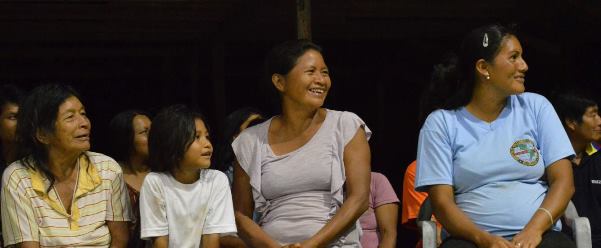
May 4, 2016 | Focolare Worldwide
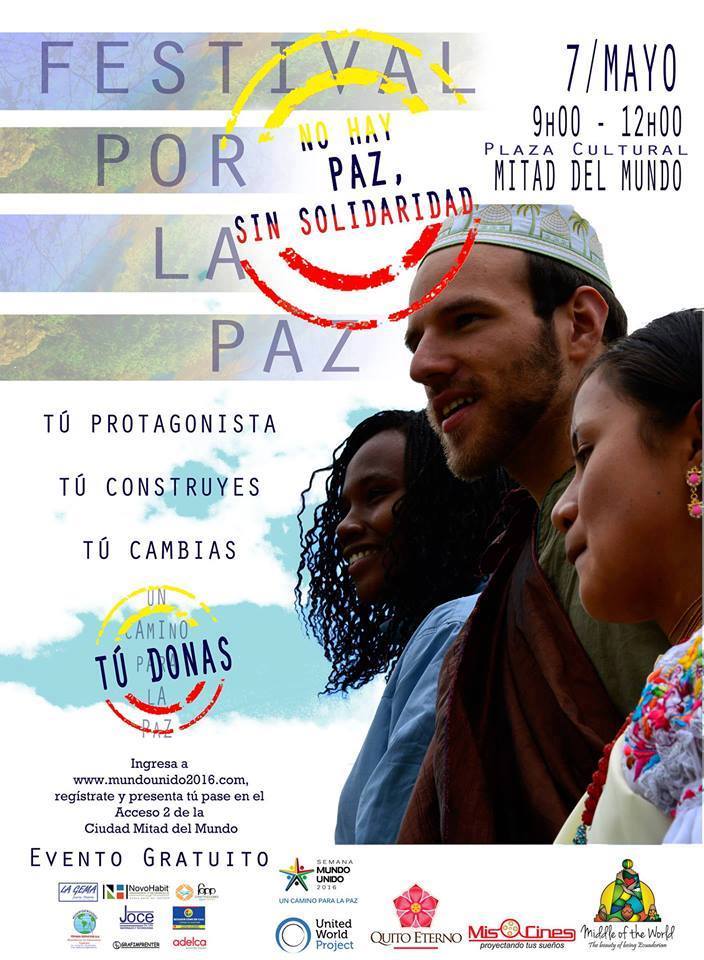 When Ecuador was chosen as the central seat of the 2016 United World Week (SMU), nobody would have imagined that on 16 April, the South American country would suffer one of the decade’s most deadly earthquakes: 660 victims, 4,600 injured, and 22,000 evacuees. «Those were really terrible moments – recalls Herminia, a member of the Ecuador United World Movement. As of now thousands of families are homeless, but the solidarity of the entire world has been really touching and made us feel that we were not alone!” In this context of humanitarian emergency, the actions of the United World undertook a new direction: “We decided to forego the Peace Festival (set for Saturday, 7 May), but decided together to continue being a source of light, and an answer to those who are suffering. Many feel the frustration of being unable to do anything, so we will give them the chance to help,” wrote the youth of the Focolare who decided to double their efforts: “They had chosen to highlight fraternity, and this is what our people are testifying to. We would like to do our best to make this our lifestyle not only during emergencies, but for always.” The Peace Festival of 7 May in Quito is entitled “solidarity is a path to peace”: a sharing of artistic experiences, and also a gathering of funds for the reconstruction. «We want to transmit to our people the message that we have only one life and must live it well.» On the Ecuador Youth for a United World’s Facebook page (fb.com/JMUEcuador) you can post a video greeting that testifies fraternity, and be a symbol of hope. The event is now well underway, with the participation of 300 young people from South America and 60 from other nations: from Italy to Korea, and from Burundi to the Philippines. The experience targeted is not a touristic journey but that of a deepening of “relationships” with oneself, the others, nature, and God, and an occasion to meet from their roots, the many cultures that make up Ecuador today. It is an immersion into the Pre-Columbian history of Quito and the community of the Andes, to prepare the youths present to start the travelling school, with the help of the Kitukara people (children of the upright sun), one of the oldest indigenous communities of Ecuador officially recognised in 2003, to which 9,000 families currently belong. “The core of our tradition is respect for Mother Earth,» Sami explains, along with the strong sense of the community: «when people arrive, they are welcomed as part of our family, because in accepting the others, we accept our own selves.” The two routes of the trip consist in travelling 1,200 km (from 1 to 6 May). Each stopover will unveil an asset, a feature, and a particular gift. From the Sierra along the Coast: in Esmeraldas, with the ancestral community of Chachis, the origin of the music and dance of the Afroesmeraldeño people; in Otavalo with the communities of Agato and Gualapuro, the discovery of the art of giving according to their ancient life philosophy.
When Ecuador was chosen as the central seat of the 2016 United World Week (SMU), nobody would have imagined that on 16 April, the South American country would suffer one of the decade’s most deadly earthquakes: 660 victims, 4,600 injured, and 22,000 evacuees. «Those were really terrible moments – recalls Herminia, a member of the Ecuador United World Movement. As of now thousands of families are homeless, but the solidarity of the entire world has been really touching and made us feel that we were not alone!” In this context of humanitarian emergency, the actions of the United World undertook a new direction: “We decided to forego the Peace Festival (set for Saturday, 7 May), but decided together to continue being a source of light, and an answer to those who are suffering. Many feel the frustration of being unable to do anything, so we will give them the chance to help,” wrote the youth of the Focolare who decided to double their efforts: “They had chosen to highlight fraternity, and this is what our people are testifying to. We would like to do our best to make this our lifestyle not only during emergencies, but for always.” The Peace Festival of 7 May in Quito is entitled “solidarity is a path to peace”: a sharing of artistic experiences, and also a gathering of funds for the reconstruction. «We want to transmit to our people the message that we have only one life and must live it well.» On the Ecuador Youth for a United World’s Facebook page (fb.com/JMUEcuador) you can post a video greeting that testifies fraternity, and be a symbol of hope. The event is now well underway, with the participation of 300 young people from South America and 60 from other nations: from Italy to Korea, and from Burundi to the Philippines. The experience targeted is not a touristic journey but that of a deepening of “relationships” with oneself, the others, nature, and God, and an occasion to meet from their roots, the many cultures that make up Ecuador today. It is an immersion into the Pre-Columbian history of Quito and the community of the Andes, to prepare the youths present to start the travelling school, with the help of the Kitukara people (children of the upright sun), one of the oldest indigenous communities of Ecuador officially recognised in 2003, to which 9,000 families currently belong. “The core of our tradition is respect for Mother Earth,» Sami explains, along with the strong sense of the community: «when people arrive, they are welcomed as part of our family, because in accepting the others, we accept our own selves.” The two routes of the trip consist in travelling 1,200 km (from 1 to 6 May). Each stopover will unveil an asset, a feature, and a particular gift. From the Sierra along the Coast: in Esmeraldas, with the ancestral community of Chachis, the origin of the music and dance of the Afroesmeraldeño people; in Otavalo with the communities of Agato and Gualapuro, the discovery of the art of giving according to their ancient life philosophy.  From the Sierra, to the Orient, up to the Amazons: in Puyo, first stage of this trip, the indigenous Shiwacocha community waited for the youth for hours, and welcomed them with dances, songs and… giving to each one a Kichwa name. This was a highly cultural encounter: from now on the community will celebrate every time the new name is solemnly pronounced. The youth learned the great sense of responsibility towards creation, and attention given to listening to the other. The trip will proceed with Tungurahua, where the youth leaders of the Kisapincha people will illustrate the value of the teamwork of the “MINGAS,” and teach how to communicate with nature. Then at Bolivar at the Salt pans of Guardanda, the youth will testify to the fruit of work and cooperation between different groups, inspired by an economic model of development that is more respectful of nature and the producers. Six days of a genuine exchange of gifts between cultures: the experience will be described during the Peace Festival on 7 May, to bear witness to the wealth of life in harmony between different cultures.
From the Sierra, to the Orient, up to the Amazons: in Puyo, first stage of this trip, the indigenous Shiwacocha community waited for the youth for hours, and welcomed them with dances, songs and… giving to each one a Kichwa name. This was a highly cultural encounter: from now on the community will celebrate every time the new name is solemnly pronounced. The youth learned the great sense of responsibility towards creation, and attention given to listening to the other. The trip will proceed with Tungurahua, where the youth leaders of the Kisapincha people will illustrate the value of the teamwork of the “MINGAS,” and teach how to communicate with nature. Then at Bolivar at the Salt pans of Guardanda, the youth will testify to the fruit of work and cooperation between different groups, inspired by an economic model of development that is more respectful of nature and the producers. Six days of a genuine exchange of gifts between cultures: the experience will be described during the Peace Festival on 7 May, to bear witness to the wealth of life in harmony between different cultures.
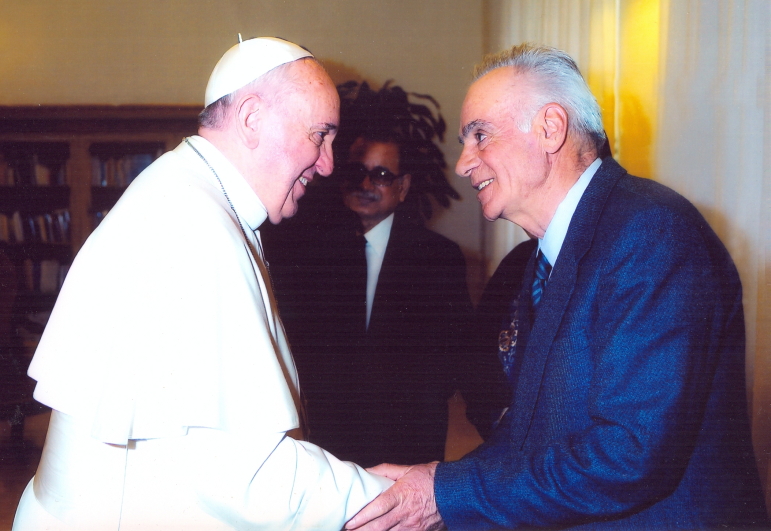
May 3, 2016 | Focolare Worldwide
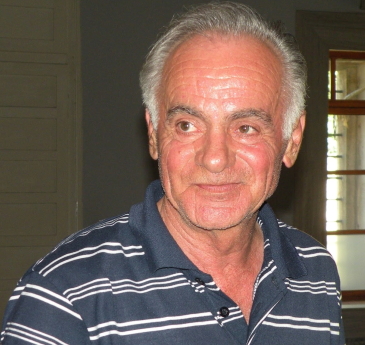 “A man of great moral stature and exceptional culture: it was a pleasure to have known him!” Countless comments like this have been arriving from around the world ever since his death, from people expressing gratitude and testifying that every encounter with Azir was a “moment of God”. A native of Kosovo, a teacher, husband and father of three children, Azir Selmani (May 9, 1947 – April 17, 2016) was the first Muslim to embrace the Focolare Movement in Skopje, Macedonia where he had gone to live because of political reasons. Azir himself recounts: “In 1990 I had a class full of Muslims, only one student was Catholic and I felt like I had to protect him. To show their gratitude his parents invited me to be their guests the Mariapolis in Slovenia. Among those people I began to ask, who are these people? I tried to open my heart a little more, and love slowly changed me. On the last day [of the Mariapolis] I mustered up the courage to stand in front of a hall filled with 300 people and admit that through them I had encountered love, the One God, the All-Powerful! In God’s light I saw all the failures of my past. I was sorry for all those generations of students to whom I had explained that the greatest power in the world was the atomic power; whereas, now I was convinced that the greatest power is love. Little by little a new life began to open before me. I began to read the Koran and to know God. I tried to convey my experience to colleagues and friends, and quite soon there were twenty of us Muslims who wanted to follow the Movement.” Azir opened his home for for Focolare gatherings and was always open to dialogue and sharing his testimony. He would always offer to translate Chiara Lubich’s writings for the Albanians. Touched by the witness of Azir and his wife, Bejije, couples who were having relationship problems would turn to them and Azir and his wife would accompany them along the path of reconciliation with gentleness and wisdom.
“A man of great moral stature and exceptional culture: it was a pleasure to have known him!” Countless comments like this have been arriving from around the world ever since his death, from people expressing gratitude and testifying that every encounter with Azir was a “moment of God”. A native of Kosovo, a teacher, husband and father of three children, Azir Selmani (May 9, 1947 – April 17, 2016) was the first Muslim to embrace the Focolare Movement in Skopje, Macedonia where he had gone to live because of political reasons. Azir himself recounts: “In 1990 I had a class full of Muslims, only one student was Catholic and I felt like I had to protect him. To show their gratitude his parents invited me to be their guests the Mariapolis in Slovenia. Among those people I began to ask, who are these people? I tried to open my heart a little more, and love slowly changed me. On the last day [of the Mariapolis] I mustered up the courage to stand in front of a hall filled with 300 people and admit that through them I had encountered love, the One God, the All-Powerful! In God’s light I saw all the failures of my past. I was sorry for all those generations of students to whom I had explained that the greatest power in the world was the atomic power; whereas, now I was convinced that the greatest power is love. Little by little a new life began to open before me. I began to read the Koran and to know God. I tried to convey my experience to colleagues and friends, and quite soon there were twenty of us Muslims who wanted to follow the Movement.” Azir opened his home for for Focolare gatherings and was always open to dialogue and sharing his testimony. He would always offer to translate Chiara Lubich’s writings for the Albanians. Touched by the witness of Azir and his wife, Bejije, couples who were having relationship problems would turn to them and Azir and his wife would accompany them along the path of reconciliation with gentleness and wisdom.  Azir and Behije took part in several Focolare interreligious gatherings both locally in their own country and also at the international level. Through these meetings Azir formed relationships of unity and friendship with people from around the world. He met Chiara personally in Rome, and shared his deepest sentiments with her. His letters always began with the words: “Dearest Mamma, freely and joyfully I write to you . . . I can never thank you enough. . . In one of those letters he confides to her: “during last Ramadan I did a close reading of the Koran and the Gospel. I’m more and more convinced that Islam and Christianity hide a common treasure that still needs to be discovered through our goodwill and our love.” In 2007 he responded immediately to the invitation from Chiara to make a pact of mutual love with her and with all the Muslims of the Movement, “so that we can be able to experience,” as Lubich wished they would, “God present amongst us. It is God who will bring us along the path of unity.” Seeing the effects of the courageous and enriching communion that is practiced in the Movement, Azir testifies: “I can say that Chiara’s dream is becoming a reality.” He never contented himself with mediocrity and diversity never frightened him. On the contrary, he always wanted to face it, convinced that he would find seeds of the Truth everywhere. At one 2014 symposium in Rome, Azir managed to greet Pope Francis personally: “My dream in life just came true!” he happily remarked. For the last six months of his life Azir battled the illness and never wavered in living for unity. And living up to his exquisite sensitivity to others, he never once refused a visitor and every visit turned out to be a most sacred moment. He was a true seeker of Freedom, the Essential, the Eternal, the Truth, and his words on these universal values will remain forever in the hearts of his listeners. This “master of dialogue”, of deep insight and broad horizons, with the soul of a poet has left us many letters, writings, poems about mercy, Mary of Nazareth in Islam and about Islam’s contact points with Christianity.
Azir and Behije took part in several Focolare interreligious gatherings both locally in their own country and also at the international level. Through these meetings Azir formed relationships of unity and friendship with people from around the world. He met Chiara personally in Rome, and shared his deepest sentiments with her. His letters always began with the words: “Dearest Mamma, freely and joyfully I write to you . . . I can never thank you enough. . . In one of those letters he confides to her: “during last Ramadan I did a close reading of the Koran and the Gospel. I’m more and more convinced that Islam and Christianity hide a common treasure that still needs to be discovered through our goodwill and our love.” In 2007 he responded immediately to the invitation from Chiara to make a pact of mutual love with her and with all the Muslims of the Movement, “so that we can be able to experience,” as Lubich wished they would, “God present amongst us. It is God who will bring us along the path of unity.” Seeing the effects of the courageous and enriching communion that is practiced in the Movement, Azir testifies: “I can say that Chiara’s dream is becoming a reality.” He never contented himself with mediocrity and diversity never frightened him. On the contrary, he always wanted to face it, convinced that he would find seeds of the Truth everywhere. At one 2014 symposium in Rome, Azir managed to greet Pope Francis personally: “My dream in life just came true!” he happily remarked. For the last six months of his life Azir battled the illness and never wavered in living for unity. And living up to his exquisite sensitivity to others, he never once refused a visitor and every visit turned out to be a most sacred moment. He was a true seeker of Freedom, the Essential, the Eternal, the Truth, and his words on these universal values will remain forever in the hearts of his listeners. This “master of dialogue”, of deep insight and broad horizons, with the soul of a poet has left us many letters, writings, poems about mercy, Mary of Nazareth in Islam and about Islam’s contact points with Christianity.


 “Resignation and weariness do not belong to the soul of Europe; even our problems can become powerful forces of unity” For the majority of Europeans, May 9 is an occasion to celebrate the values of integration, unity and peace, as this date marks the anniversary of the historical Schuman declaration that gave birth to the European Union; but for others it marks the time when Stalin declared victory over Germany on May 9, 1945 and rights started to be deprived under the Soviet rule. The innovative process of integration, which Europe dared to start sixty years ago, should be confronted against this historical background even today. Considering the present crisis and the contradictions inherent in the cultural and social paradigms that peoples in Europe are experiencing, one is bound to ask: is the European experience still valid? Do Europeans still want to be together? For Pasquale Ferrara, a diplomat, a scholar and a lecturer in International Relations and Diplomacy, “the European vision of integration – which consists of bringing together not so much the leaderships, but the political will of the different countries to govern jointly over phenomena that are beyond control of individual states – is still one of great insight”. Through integration “Europe demonstrates that even today multilateralism can have an added value if attention is not centred on the state but on the political function it performs to provide for the needs of its citizens in a global and transnational world”.
“Resignation and weariness do not belong to the soul of Europe; even our problems can become powerful forces of unity” For the majority of Europeans, May 9 is an occasion to celebrate the values of integration, unity and peace, as this date marks the anniversary of the historical Schuman declaration that gave birth to the European Union; but for others it marks the time when Stalin declared victory over Germany on May 9, 1945 and rights started to be deprived under the Soviet rule. The innovative process of integration, which Europe dared to start sixty years ago, should be confronted against this historical background even today. Considering the present crisis and the contradictions inherent in the cultural and social paradigms that peoples in Europe are experiencing, one is bound to ask: is the European experience still valid? Do Europeans still want to be together? For Pasquale Ferrara, a diplomat, a scholar and a lecturer in International Relations and Diplomacy, “the European vision of integration – which consists of bringing together not so much the leaderships, but the political will of the different countries to govern jointly over phenomena that are beyond control of individual states – is still one of great insight”. Through integration “Europe demonstrates that even today multilateralism can have an added value if attention is not centred on the state but on the political function it performs to provide for the needs of its citizens in a global and transnational world”. 





